 Shutterstock
Shutterstock
Dogs come in all shapes and sizes, each with its unique charm, but some breeds come with significant health challenges. From breathing difficulties and joint problems to heart conditions and genetic disorders, these breeds are more prone to medical concerns that can affect their quality of life and increase veterinary costs. Owning one of these dogs requires preparation for frequent vet visits and specialized care, making it essential for potential owners to understand the health risks associated with these beloved, but often fragile, companions.
English Bulldog
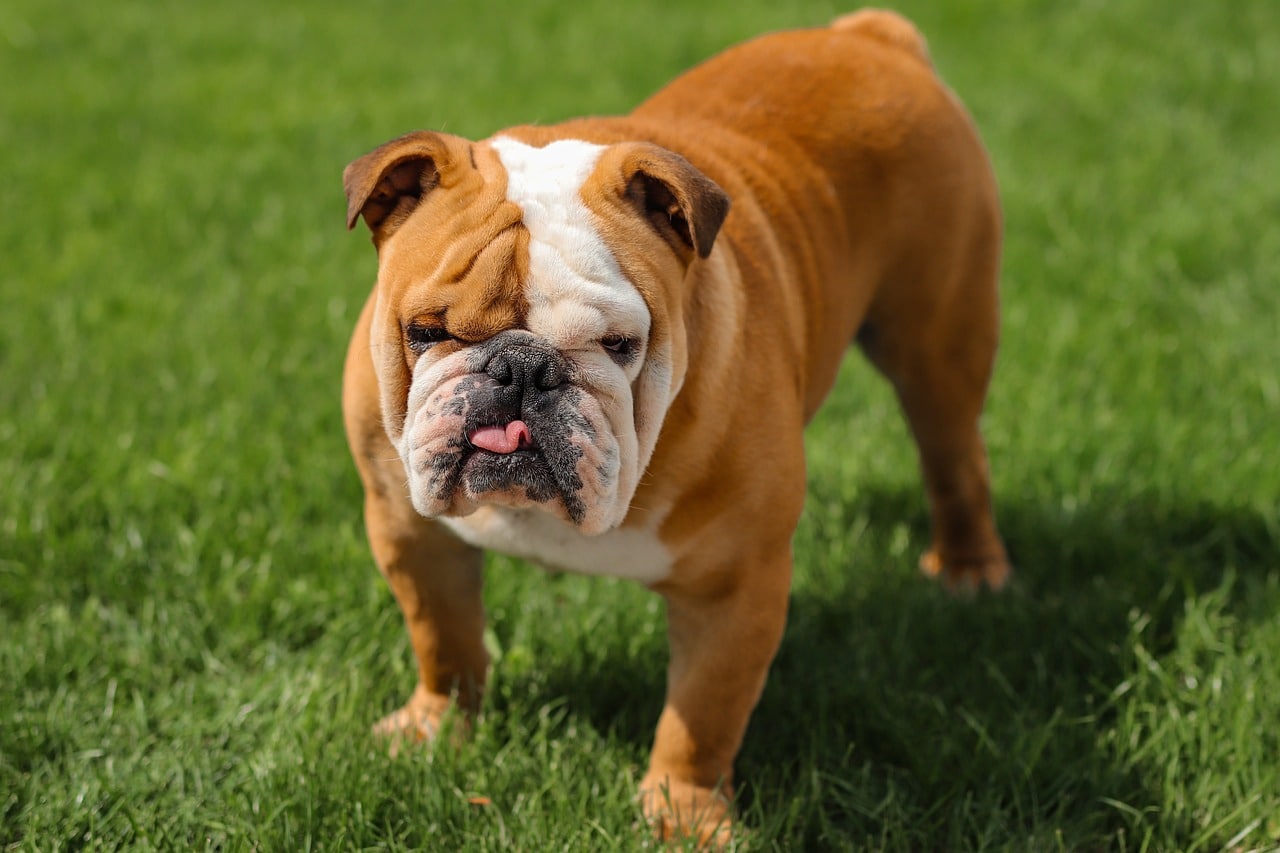 Shutterstock
Shutterstock
The English Bulldog’s wrinkly face and charming personality make them hard to resist, but their health problems are no joke. Known for their brachycephalic (flat-faced) features, English Bulldogs often suffer from breathing difficulties, overheating, and snoring. Their compressed airways make it challenging for them to regulate temperature, especially in hot weather. They are also prone to hip dysplasia, skin infections in their wrinkles, and heart problems. Because of their unique structure, Bulldogs often require special care and even surgeries to improve their quality of life, making them one of the most health-challenged breeds out there.
French Bulldog
 Shutterstock
Shutterstock
The French Bulldog, another brachycephalic breed, struggles with many of the same issues as its English cousin. Their adorable squished faces come at the cost of serious respiratory problems, making them prone to snoring, sleep apnea, and difficulty breathing, especially in warm weather. French Bulldogs are also susceptible to spinal disorders, skin allergies, and eye conditions. Their compact build and genetic predisposition to joint problems mean they often face mobility challenges. While their loving and playful nature wins hearts everywhere, caring for a French Bulldog often involves a significant investment in medical attention and regular monitoring.
Chihuahua
 Shutterstock
Shutterstock
Chihuahuas may be small in size, but they often come with big health challenges. Their tiny frames are prone to various genetic disorders, including heart issues like mitral valve disease and patellar luxation, a condition where the kneecap slips out of place. Dental problems are common in Chihuahuas due to their small jaws and crowded teeth, requiring regular dental care to avoid painful infections. They can also suffer from hydrocephalus, a condition where fluid accumulates in the brain. Despite their sassy and loving personalities, owning a Chihuahua requires diligent health management and a commitment to their overall well-being.
Pug
 Shutterstock
Shutterstock
Pugs are beloved for their expressive faces and curly tails, but they too fall into the brachycephalic category, which means breathing issues are a constant concern. Pugs are known for snorting, wheezing, and even collapsing from respiratory distress. Their bulging eyes are prone to injuries and conditions like corneal ulcers, while their skin folds can harbor bacteria, leading to infections. Additionally, Pugs often deal with obesity, which exacerbates joint and heart problems. Owning a Pug means being vigilant about their diet, exercise, and overall health to keep them as happy and healthy as possible despite their many challenges.
Dachshund
 Shutterstock
Shutterstock
Dachshunds, with their iconic long bodies and short legs, are prone to serious spinal issues, particularly intervertebral disc disease (IVDD). Their elongated spines are susceptible to disc herniation, which can result in pain, paralysis, or the need for costly surgery. Jumping from furniture or excessive weight can worsen these issues. Dachshunds also face dental problems and heart disease, which can impact their overall quality of life. While they are spirited and loving companions, these “sausage dogs” require special attention to protect their backs, making regular check-ups and preventive care a must for any Dachshund owner.
Great Dane
 Shutterstock
Shutterstock
Great Danes, often referred to as “gentle giants,” unfortunately come with a giant list of health issues. Their large size makes them prone to heart problems, particularly dilated cardiomyopathy, which can lead to heart failure. They are also at risk for hip dysplasia and joint problems due to their rapid growth. One of the most life-threatening conditions for Great Danes is gastric torsion or bloat, a severe and sometimes fatal twisting of the stomach. Because of their health challenges and short lifespan, owning a Great Dane often involves preparing for significant medical expenses and a heartbreakingly brief companionship.
Saint Bernard
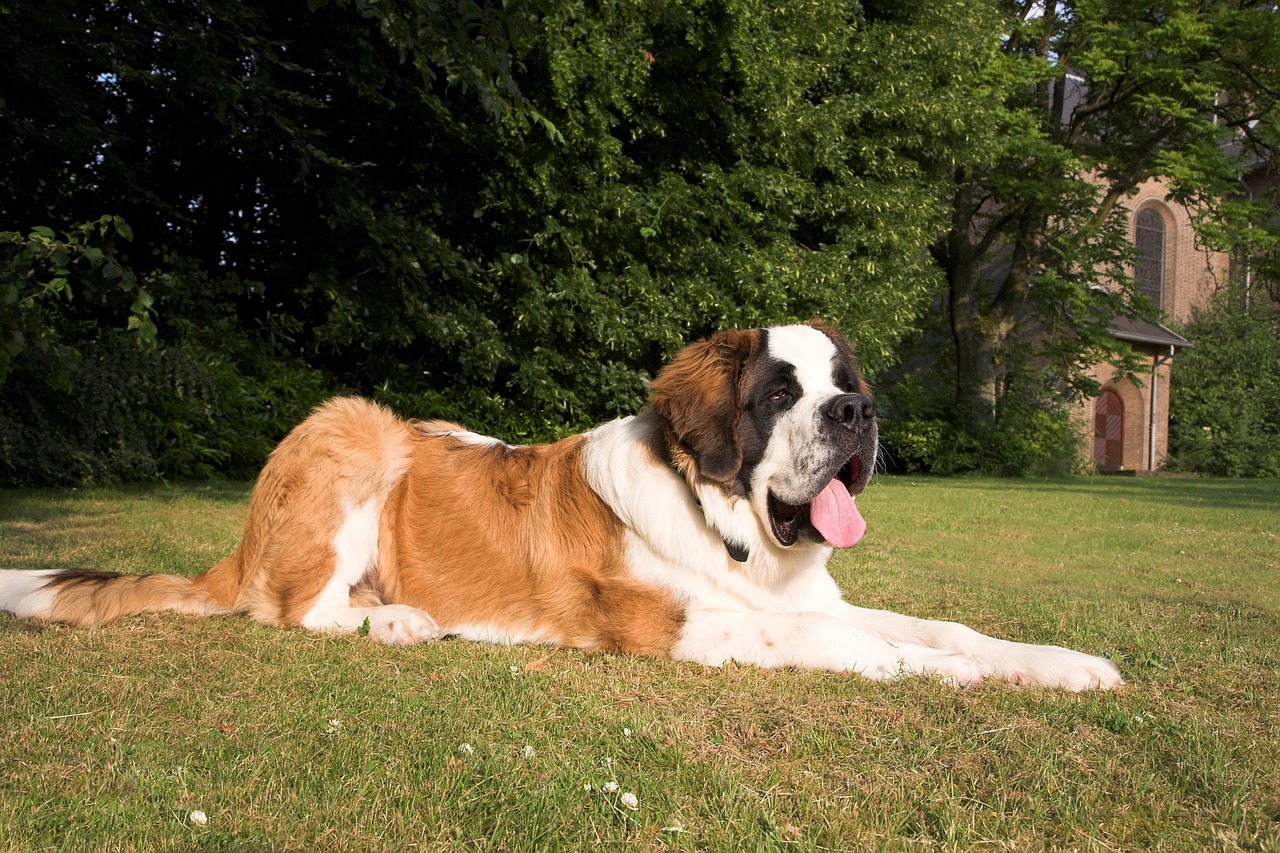 Shutterstock
Shutterstock
Saint Bernards are another giant breed with a slew of health concerns. Their large frames put them at risk for joint issues like hip and elbow dysplasia, and moving and exercise difficult as they age. Saint Bernards also have a predisposition to heart disease, bloat, and eye conditions such as entropion. Their thick, droopy jowls can lead to excessive drooling and infections if not properly cared for. Despite their loving and gentle temperament, Saint Bernards require committed owners who can handle the emotional and financial toll of frequent health issues, especially in their later years.
Boxer
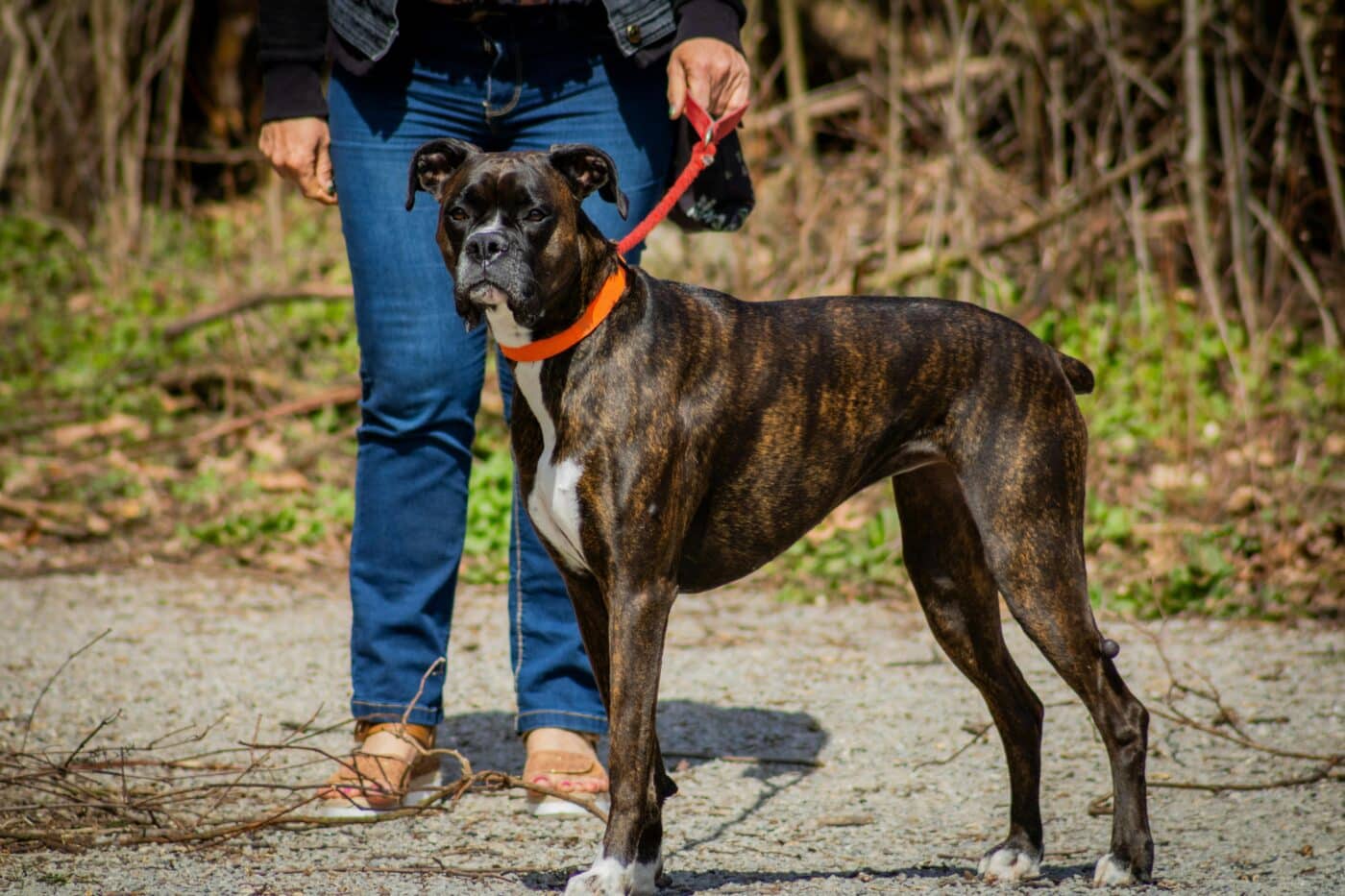 Shutterstock
Shutterstock
Boxers are known for their playful, energetic nature, but their health can be a significant concern. This breed is genetically predisposed to various heart conditions, such as aortic stenosis and cardiomyopathy, which can lead to sudden death if not monitored closely. Boxers are also prone to certain types of cancer, hip dysplasia, and neurological disorders like degenerative myelopathy. Their short muzzles can contribute to breathing difficulties, especially in hot weather. Owning a Boxer means being prepared for potential medical challenges and ensuring they receive regular health screenings to detect and manage issues as early as possible.
Doberman Pinscher
 Shutterstock
Shutterstock
Doberman Pinschers are elegant and loyal dogs, but they are often plagued by heart conditions, particularly dilated cardiomyopathy. This disease can lead to sudden heart failure, making regular cardiac check-ups essential. Dobermans are also susceptible to Wobbler Syndrome, a neurological disorder that affects their spine and can cause pain or difficulty walking. Additionally, they have a genetic predisposition to von Willebrand’s disease, a blood clotting disorder. Despite their strength and intelligence, Dobermans require vigilant health care and regular vet visits to ensure they live as long and comfortably as possible.
Bullmastiff
 Shutterstock
Shutterstock
Bullmastiffs are strong, protective dogs with a tendency to develop serious health issues. Like many large breeds, they are prone to hip and elbow dysplasia, which can lead to pain and limited mobility. They also frequently suffer from bloat, a potentially life-threatening condition. Heart problems, eye disorders, and certain cancers are common in Bullmastiffs as well. Their short lifespan, often less than 10 years, means that these gentle giants require significant veterinary care to maintain their quality of life. While they are loyal and loving companions, the financial and emotional investment in their health can be considerable.
English Mastiff
 Shutterstock
Shutterstock
English Mastiffs, with their massive size, often experience health issues related to their joints and cardiovascular system. Hip dysplasia, arthritis, and ligament problems are common, causing discomfort and limiting mobility. These gentle giants are also prone to bloat and heart disease, which can be fatal if not treated promptly. Their droopy skin can lead to eye problems, such as entropion or ectropion, and regular vet visits are necessary to manage these conditions. Despite their sweet and calm demeanor, English Mastiffs require owners who are prepared for the physical and financial demands of caring for such a health-challenged breed.
Shar Pei
 Shutterstock
Shutterstock
The Shar Pei’s unique wrinkles and adorable face come with a host of health problems. They are prone to skin infections due to the folds of their skin, which need regular cleaning and monitoring. Shar Peis also suffers from a condition called Shar Pei fever, which can lead to kidney failure. Their small, tightly curled ears are prone to infections, and they often face joint problems, such as hip dysplasia. Additionally, their eyes are susceptible to entropion, a condition where the eyelids roll inward. While they are fiercely loyal and loving, caring for a Shar Pei requires vigilance and consistent medical attention.
Weimaraner
 Shutterstock
Shutterstock
Weimaraners are sleek, energetic dogs with a predisposition to various health concerns. They are prone to bloat, which is a life-threatening condition requiring immediate veterinary care. These dogs also have a higher risk of developing hip dysplasia and spinal issues, affecting their mobility. Weimaraners are known for their sensitive skin, often dealing with allergies and irritation. They also have a tendency toward autoimmune disorders, which can complicate their overall health. Despite their athleticism and intelligence, owning a Weimaraner means being prepared for potential health crises and ensuring they receive regular vet visits and a balanced lifestyle.
Dalmatian
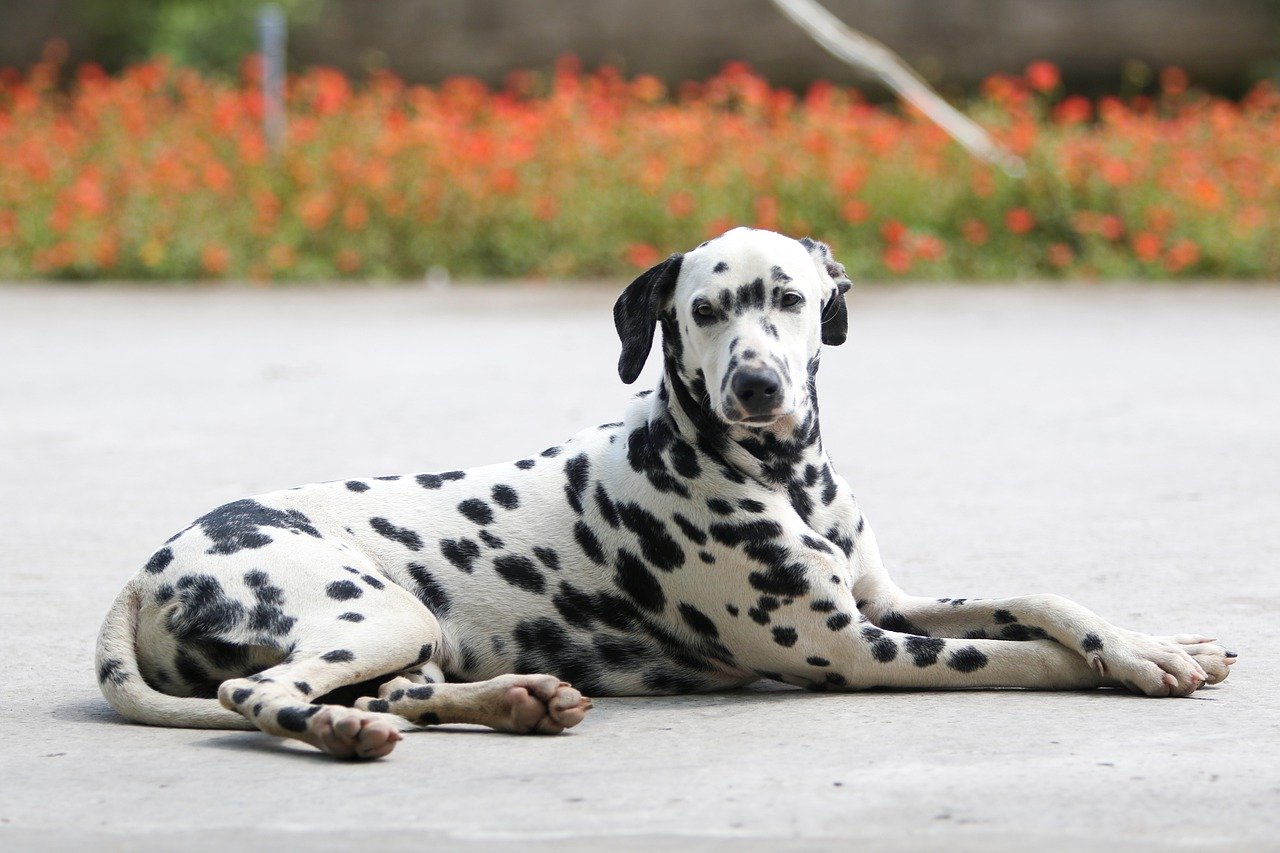 Shutterstock
Shutterstock
Dalmatians, known for their iconic spots, have a genetic predisposition to certain health issues, the most notable being deafness. Many Dalmatians are born deaf or develop hearing problems as they age, which can make training and safety more challenging. They are also prone to urinary stones due to a genetic issue that affects how they metabolize uric acid. A special diet and regular monitoring are often required to prevent painful urinary blockages. While Dalmatians are energetic and loyal, their health concerns mean that potential owners must be prepared for ongoing care and preventive measures to keep them healthy.
Irish Wolfhound
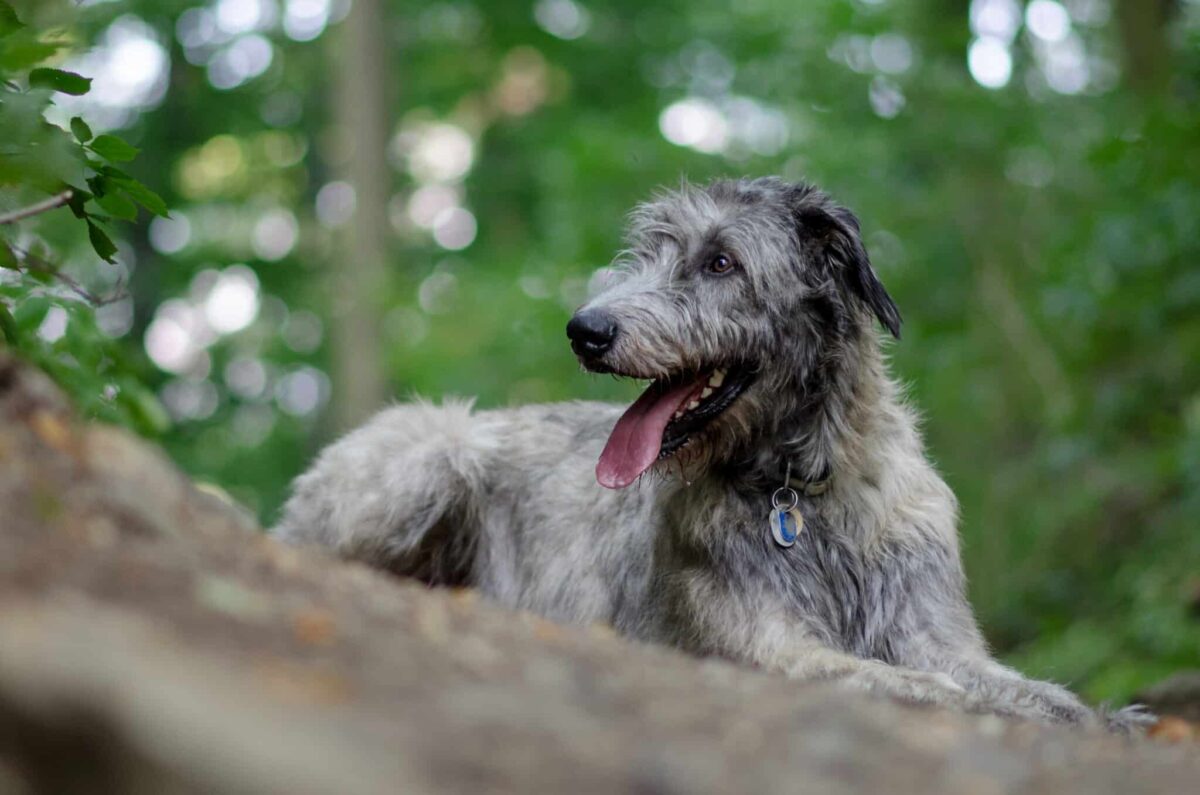 Shutterstock
Shutterstock
Irish Wolfhounds are majestic dogs with a gentle nature, but their health is often compromised by their giant size. They are prone to heart conditions, such as dilated cardiomyopathy, which can shorten their already brief lifespan. Bone cancer, joint issues, and bloat are also common in this breed, making regular vet visits a necessity. The rapid growth of Irish Wolfhounds can exacerbate their health problems, and they often require a specialized diet to support their joints and bones. Despite their loving and gentle demeanor, the emotional and financial investment required to care for an Irish Wolfhound can be significant.
The Vet Bills We Didn’t See Coming
 Shutterstock
Shutterstock
Owning a health-challenged breed may seem daunting, but the love and companionship they offer often make the medical struggles worthwhile. These dogs remind us that true love sometimes comes with a cost, one many of us are happy to pay. Though they keep us on our toes with vet visits and special care, they also bring immense joy, laughter, and unconditional affection into our lives. Their loyal, loving presence makes every challenge feel like a small price for the happiness they bring.
 Toledo, United States.
Toledo, United States.